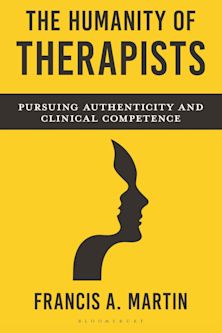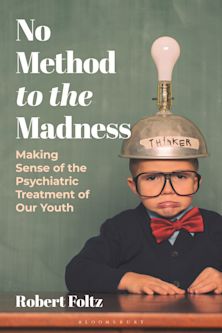- Home
- ACADEMIC
- Psychology
- Psychopathology & Clinical Psychology
- Psychological Care for Cancer Patients
Psychological Care for Cancer Patients
New Perspectives on Training Health Professionals
Psychological Care for Cancer Patients
New Perspectives on Training Health Professionals
You must sign in to add this item to your wishlist. Please sign in or create an account
Description
Psychological Care for Cancer Patients: New Perspectives on Training Health Professionals is an innovative work in psychosocial oncology which examines the role of creative expression in the psychological treatment of cancer patients. After having spent five decades in this field, Domenico Arturo Nesci has become a proponent of treatment that values patients as creatives and valiant fighters rather than objects of an ambivalent compassion. This book analyzes this intersection of psychology, the humanities, medicine, and social work through scholarship conceived to help all people whose lives are crossed by cancer: patients, relatives, caregivers, health professionals, and students.
Table of Contents
Chapter 2 Transitional Setting in Psycho-Oncology
Chapter 3 Training Health Professionals to Prevent their Burnout
Chapter 4 The Workshop Movies and Dreams
Chapter 5 Multimedia Psychotherapy in Oncological Grief
Chapter 6 Online Psychotherapy with Cancer Patients
Product details
| Published | Feb 06 2023 |
|---|---|
| Format | Ebook (PDF) |
| Edition | 1st |
| Extent | 162 |
| ISBN | 9798881881795 |
| Imprint | Lexington Books |
| Illustrations | 7 b/w illustrations; 1 tables; |
| Publisher | Bloomsbury Publishing |
About the contributors
Reviews
-
This excellent book introduces professionals to the work of Nesci and his life-long interest in and commitment to the psychological care and well-being of cancer patients and their caregivers. Through his early experience as a trainee, he realized the unique challenges cancer patients face: difficult treatments and the existential threats cancer presents, the latter usually ignored by medical teams. Patients may be labeled as uncooperative or depressed based on their lack of positive emotional expression to staff. Nesci developed a theory explaining patients' reactions and treatment needs, also realizing the need to support medical staff burdened with difficult treatments and uncertain outcomes. He then created a group discussion protocol for medical trainees to raise awareness of the psychosocial aspects of medical care. Written as a professional memoir, this volume describes the author's early experiences as he began to specialize in treating cancer patients and their families and training medical teams. His protocol emphasizes the need to listen, observe, and empathize, key skills needed to support medical staff and to help patients come to terms with the existential challenges their illness presents. Nesci created a training center for doctors and continues his commitment to humanize medical care for extremely ill patients. Highly recommended. Advanced undergraduates through faculty; professionals.
Choice Reviews
-
This book contains an original approach to the lived experience that cancer patients undergo. Domenico Arturo Nesci exhibits a truly personal disposition towards his patients; one that is, in a broad sense, humanisticyet well-grounded in the psychological dimension of the patient-doctor relationship. Both dimensions are badly needed in our time and age, considering the highly technological nature of the medical and surgical environments in today’s hospital settings. Practitioners and lay persons may benefit from this newer and potentially useful view of what “cancer” – the disease, but also the anthropological fact – represents existentially for those who suffer from it and those who are called to treat them.
Dominique Scarfone, M.D., Université de Montréal; Canadian Psychoanalytic Society and Institute
-
Psychological Care for Cancer Patients is a compassionate and creative book that draws upon medical history, mythology, and psychoanalytic principles to provide supportive ideas for people living with and dying of cancer. His perspective, drawn from decades of clinical work and teaching, involves humanizing the cancer experience by making sense of apparently irrational reactions of doctors, patients, and their families. He makes apparently inexplicable dismissal of patient concerns by doctors and denial of painful realities by patients understandable and addressable. Dr. Nesci highlights the importance of endless change as a process that underlies our humanity, keeps us alive, and helps us to face our deaths.
David Spiegel, M.D., Stanford University and author of Living Beyond Limits: New Hope and Help for Facing Life-Threatening Illness

ONLINE RESOURCES
Bloomsbury Collections
This book is available on Bloomsbury Collections where your library has access.



































